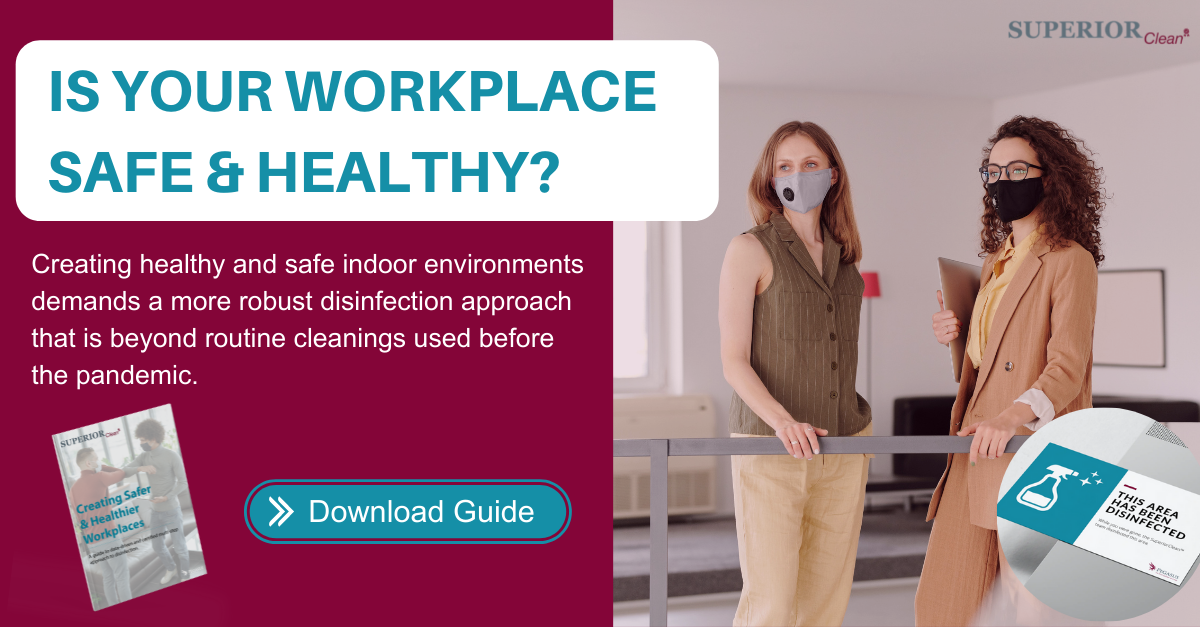Is it time to go back to the office? More and more U.S. workers are thinking about that question and wondering why, after so many have adapted so well to working from home, they should go back to the “old way” of daily commutes and lengthy meetings. That doesn’t mean they’re not willing to return to work at all: 52% would prefer a hybrid work system moving forward, and many companies are now developing their own hybrid work programs.
Introducing hybrid workplaces means that workers will arrange their schedules around in-office and remote time, some days in and some days out. Each company will have to figure out the specifics of how that’ll look for them, but facility managers need to start thinking ahead with respect to covid-19 safety and Hybrid Workplace Cleaning.
What’s different about hybrid workplaces?
Office Hours By Mutual Agreement
Modern technologies like Zoom or Slack seemingly make it easy to fulfill much of your office work from home, but a year of remote work has also revealed the limitations of technology. The hybrid workplace should be developed in cooperation with your employees, scheduling their days in-office and their days out to meet both their needs and those of the organization. Expect a little trial and error at first.
Use of Open Collaboration Spaces
Remote workstations aren’t precisely the best way to collaborate and build a strong office culture. Even taking social distancing guidelines into account, you still need a safe and inviting space for spontaneous, face-to-face interactions where your employees can bounce ideas off each other and tackle the many problems that arise in your daily operations.
Facility managers need to be thinking carefully about how offices will be arranged going forward. Employees don’t want to be isolated all the time, but neither are they looking to be crammed together with barely any room to breathe. Nor is that healthy.
Mobility is the key feature of open collaboration spaces. Rather than incorporating fixed office features into the design, think about providing space using furniture that can be deployed and stored as needed. There simply won’t be as many employees sharing the area at any given time as there used to be.
Prevent Groupthink and Encourage More Creativity
Counterintuitive as it sounds, collaboration doesn’t really mean that you’re “collaborating” all the time. It’s easy to reach a point of mitigated returns in working together, after which it can simply become unproductive. For true collaboration to occur, your employees need to spend some time away from each other.
How’s that possible? An inevitable social dynamic springs up naturally whenever people are together for too long. Friendships form, rivalries blossom, and little hierarchies creep in whether you want them or not. The more extroverted, by definition, tend to dominate the conversation.
That’s unwelcome for a business looking to innovate. You want all voices to be heard, so a little time away, followed by successive patterns of coming together, is an excellent way to keep things manageable. Moreover, that solitude is necessary for new and creative ideas to be identified and flourish. Presumably, everyone on the team is there for a reason. They should all have the chance to contribute.
Accessible Cleaning Stations
Think about where your employees will wash their hands and use sanitizers while on the premises. CDC guidelines require you to maintain a clean and sanitary work environment to prevent the spread of Covid-19. In addition to limiting the number of workers on the premises at any given time, encouraging good hygiene habits and providing the means to follow through is one of the best ways to keep your team safe.
You might also think about limiting access to areas where crowds want to congregate. That might mean avoiding sending everyone into the same conference room for a meeting or shutting down the cafeteria if you have one. With their reduced in-office hours, hybrid workers may find it more convenient and safer to bring their own meals or simply eat elsewhere.
Hybrid workplaces present some interesting challenges, but they represent an important opportunity to revolutionize and perhaps even improve the way we work. A mix of remote and in-office hours means that every hour spent at the office needs to be done with task and purpose to make the most of it.
Pegasus Building Services would be happy to help you prepare your building for the return of your employees. We offer a diverse suite of cleaning services suitable for the modern, hybrid office, such as thorough inspections of “problem points” and deep-cleaning decontamination of the premises. Call us today to learn more about our services.


.jpg)



